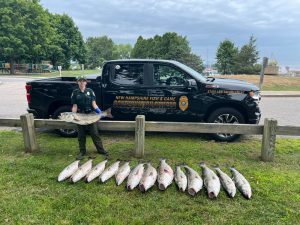Depending on who you talk to, Florida is a haven of sorts. The miles upon miles of palm-laden shorelines, tropical climate and endless tourist attractions are certainly what attract the bulk of the state’s tourists and newly-minted residents.
When it comes to outdoor recreation, the Sunshine State is also known for its unique wildlife, refuges, lakes, rivers and public lands. For hunters and anglers, it’s somewhat of a paradise.
As the self-proclaimed “fishing capital of the world,” you wouldn’t know it according to data indicating that the sale of hunting and fishing licenses is nowhere near keeping pace with population growth. Public land makes up roughly 26 percent of the state of Florida and while that certainly does not rival offerings in some western states, it’s substantial.
According to the chairman of the Florida Fish and Wildlife Conservation Commission, Brian Yablonski, if the next generation of anglers and hunters does not step up, the state is going to have trouble managing wildlife resources in the future.
“Conservation has been done on the shoulders of anglers and hunters for about 100 years,” Yablonski told the Palm Beach Post. “Love kayaks. I’m a kayaker. Love photographers. Love boaters. … They pay general tax revenue. We have 10 percent of our funding as general revenue. So really, boaters, hunters, anglers, these have been shouldering conservation. If other groups want to shoulder some of that too, I think we’re willing to hear that out.”
As such, the state is concentrating on younger generations such as Generation X’ers and Millennials as part of their marketing and outreach efforts moving forward. As part of the state’s “3R” program, the Commission is setting aside 30 percent of its hunting fund to be used for recruitment and 12 percent of its federal Sport Fish Restoration funds to attracting additional anglers.
“We know that declines are coming, and we’re kind of holding our own in Florida right now,” Commission Executive Director Nick Wiley said. “If you ran a business that depended upon your customer base, and experts tell you, ‘In five to 10 years your customer base is going to age out and they’re all going to be too old to be customers anymore and you’re not recruiting and bringing in new customers anywhere near as fast to replace them,’ I think that would get your attention.”
While the trend is still pointing upwards, as license sales continue to exhibit modest growth, hunting licenses have had the weakest growth, growing from 159,1576 licenses in 2013 to just 162,604 in 2016.
Image: Florida Fish and Wildlife




